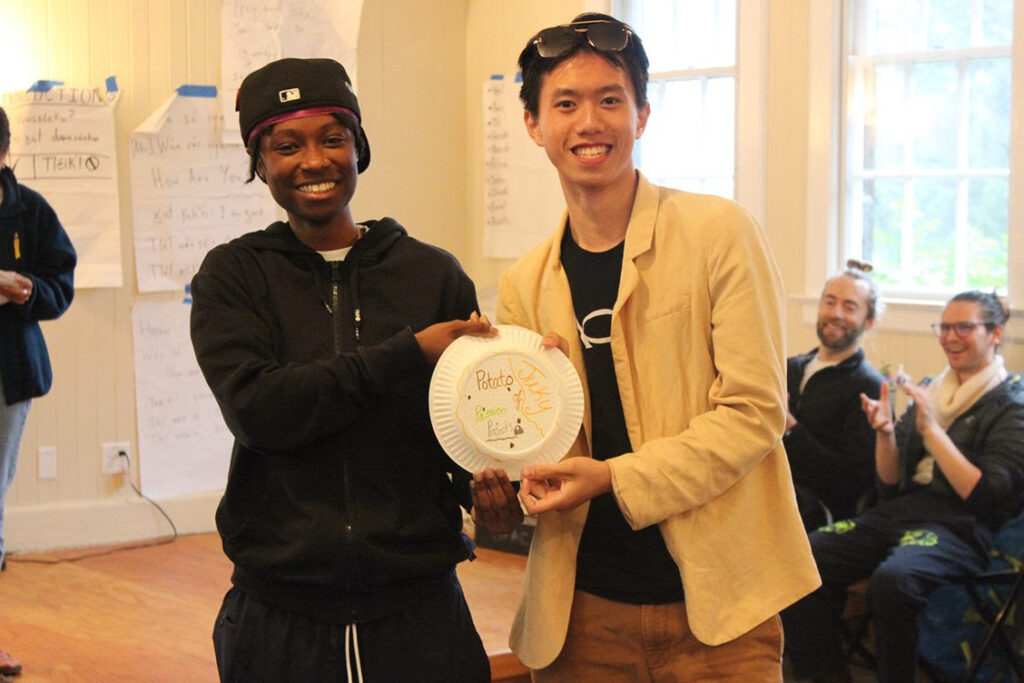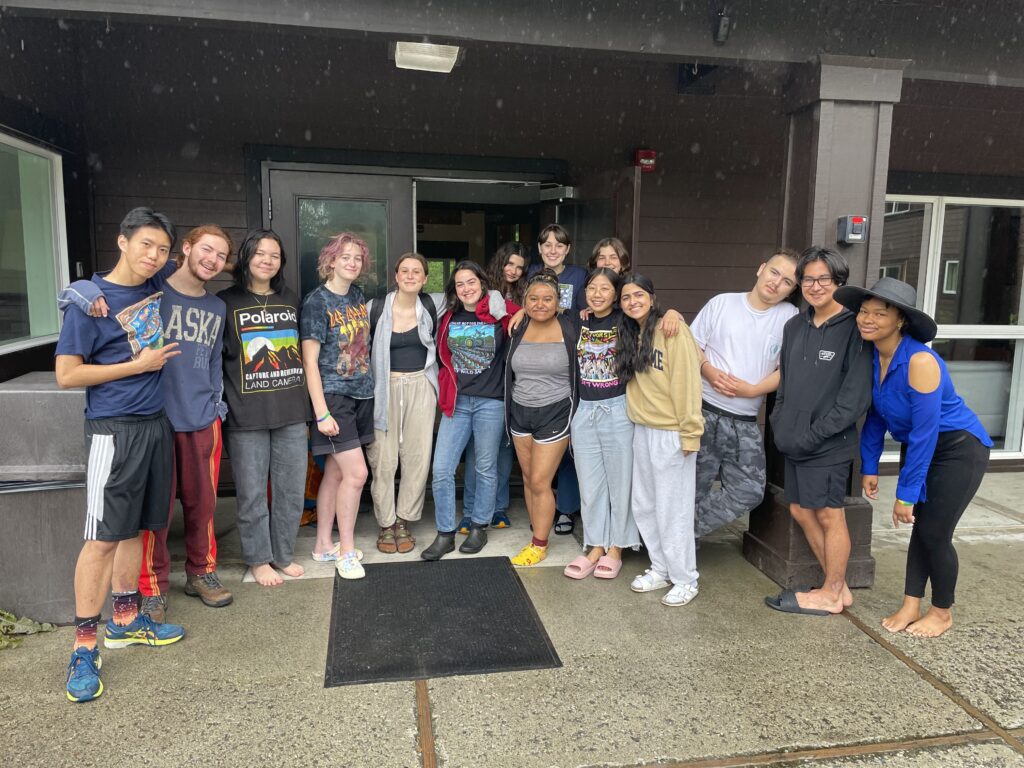Juky (New York, NY) attended the Outer Coast Summer Seminar 2022 before the start of his senior year in high school. Shortly after he finished the program, he wrote this story reflecting on his experience.
As a child of a frugal and low-income family, I never had a chance to travel and truly get to know the world. Even though I have studied in China, Brazil, and now America, before my Outer Coast experience in Sitka, my life was strictly focused on education and earning money. While the countries I lived in are large and diverse, I barely understood them. I was born in Brazil but do not feel like a Brazilian. I have Chinese parents, but I do not identify as Chinese. This incongruence of being has been self-suffocating.
Throughout my journey in these countries, I experienced the darkness of comparison, the guilt of sometimes doing nothing capitalistic, and the pressure of academic competition but not collaboration. These challenges growing up haunted me throughout my life until my experience at Outer Coast, which led to a moment of existential self-realization.
Just before Outer Coast, I had lived in the most tranquil borough — Staten Island — in nonstop New York City. In retrospect, it seems ironic that everyone tries to achieve success by keeping themselves busy constantly. As an overachiever, I bought into this mentality by applying to multiple programs and internships. Ultimately, I was chosen for four paid internships but still chose Outer Coast. I felt an unbearable urgency to disrupt my stereotypical, fast-paced New York world to discover something new — not only places but also the possibilities of myself. Who am I at the end of the day? Brazilian? Chinese? American? None fully resonated with my being. To deeply reconcile my identity, I ventured to Sitka, Alaska.

Sitka was my first retreat from the frantic and mundane world. The first two days of camping at Sam Sing Cove, while WiFi fasting, welcomed me to merge the forest and human beings as one. The joy of waking up early to explore nature solo, the gorgeously shimmering sunrise reflected on the transparent water. With the laughter from the lovely, warm bonfire, the empathy for profound one-on-one talks, and the invaluable reflective time, I had only two intentions: bonding and self-discovery. For the first time in my life, I felt the total absence of worry and need. Happy. I was living in the present.
These experiences awakened a new identity in me. Outside my projects, culture, and origin, I am a human being, just like everyone else. Now that I see that, I can honor myself in my own Juky way, being authentic and vulnerable. The new Juky can fully express himself and be susceptible to sharing his emotions without fearing judgment. I am delighted with my authentic self.

I learned how to be silent and a listener, I learned how to love, I learned how to find delight within what I do, I learned how to do nothing despite the pressures of capitalism, I learned to let go of my ego and focus on the collective, and I found meaning in the land and community I stand in.
Living in different places gave me a narrow understanding of each country. It wasn’t until Sitka that I was able to deeply immerse myself in a singular context. In this intimate connection with myself, the people, the land, the culture, and community challenges, a thought came to mind: I had been hiding my real emotions under societal pressure for too long, always being told that “boys don’t cry!” All these realizations led to the revelation of my biggest lesson at Outer Coast: I learned to unveil the vulnerability and sensitivity within my masculinity.

